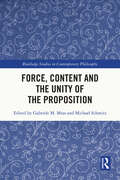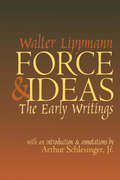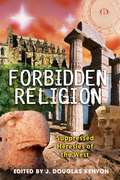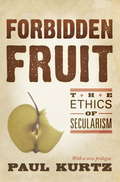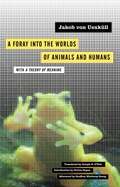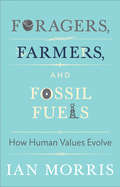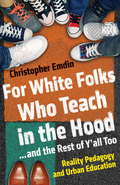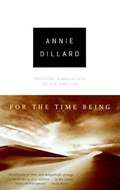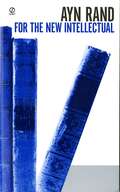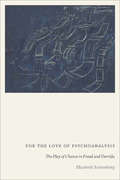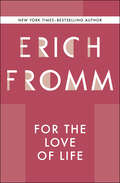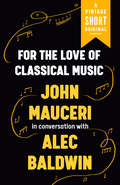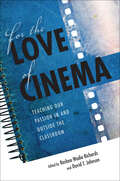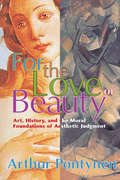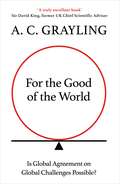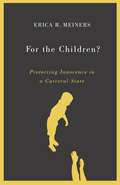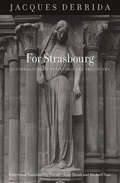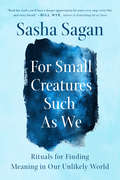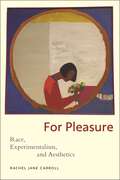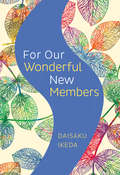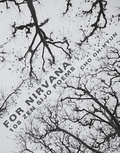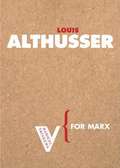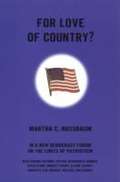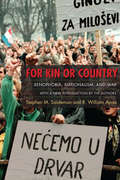- Table View
- List View
Force, Content, and the Unity of the Proposition (Routledge Studies in Contemporary Philosophy)
by Michael Schmitz Gabriele M. MrasThis volume advances discussion between critics and defenders of the force-content distinction and opens up new ways of thinking about force and speech acts in relation to the unity problem. The force-content dichotomy has shaped the philosophy of language and mind since the time of Frege and Russell. Isn’t it obvious that, for example, the clauses of a conditional are not asserted and must therefore be propositions and propositions the forceless contents of forceful acts? But, others have recently asked in response, how can a proposition be a truth value bearer if it is not unified through the forceful act of a subject that takes a position regarding how things are? Can we not instead think of propositions as being inherently forceful, but of force as being cancelled in certain contexts? And what do assertoric, but also directive and interrogative force indicators mean? Force, Content and the Unity of the Proposition will be of interest to researchers working in philosophy of language, philosophical logic, philosophy of mind and linguistics.
Force and Ideas: The Early Writings
by Walter LippmannThe acclaim for Lippmann the political thinker has at times obscured the equally impressive accomplishments of Lippmann the journalist. His output was prodigious, his influence on journalism significant. According to James Reston: "He has given a generation of newspapermen a wider vision of their duty." Early Writings provides a unique opportunity to rediscover this journalistic Lippmann and to observe the formative years of a brilliant mind.In 1913, just three years out of Harvard, Lippmann was asked by Herbert Croly to help plan and edit a new "weekly of ideas," the New Republic. Beginning with its first issue in 1914 and continuing through the following six years, Lippmann wrote numerous signed and unsigned articles. Here are the best of them, written during the exciting political era that began with the trauma of World War I and ended in the stasis of Republican Normalcy.Pulitzer Prize-winning historian, Arthur Schlesinger, Jr., places Lippmann in historical context while recreating the intellectual ambiance of the Wilsonian era. His annotations identify little-remembered personages and clarify issues that time has befogged. But in another sense, the issues and personages of 1910-1920 are only too familiar. Our world is still a world of war, ineffectual international political organizations, disappointed idealism, nerve-wracking platitudes, social unrest, and slinking politicians.
Forbidden Religion: Suppressed Heresies of the West
by J. Douglas KenyonReveals the thread that unites the spiritual paths that have opposed orthodox religion over the centuries and the challenge they provide to the status quo • Contains 40 essays by 18 key investigators of heresies and suppressed spiritual traditions, including Steven Sora, Ian Lawton, Jeff Nisbet, P.M.H. Atwater, John Chambers, and Vincent Bridges • Edited by Atlantis Rising publisher, J. Douglas Kenyon Following the model of his bestselling Forbidden History, J. Douglas Kenyon has assembled from his bi-monthly journal Atlantis Rising material that explores the hidden path of the religions banned by the orthodox Church--from the time before Christ when the foundations of Christianity were being laid to the tumultuous times of the Cathars and Templars and the Masons of the New World. Revealed in this investigation of the roots of Western faith are the intimate ties of ancient Egyptian religion to Christianity, the true identities of the three magi, the link forged by the Templars between early Christianity and the Masons, and how these hidden religious currents still influence the modern world. This book serves as a compelling introduction to the true history of the heretical religious traditions that played as vital a role in society as the established faiths that continuously tried to suppress them. Born in the same religious ferment that gave birth to Christianity, these spiritual paths survived in the “heresies” of the Middle Ages, and in the theories of the great Renaissance thinkers and their successors, such as Isaac Newton and Giordano Bruno. Brought to the New World by the Masons who inspired the American Revolution, the influence of these forbidden religions can be still found today in “The Star Spangled Banner” and in such Masonic symbols as the pyramid on the back of the dollar bill.
Forbidden Fruit: The Ethics of Secularism
by Paul KurtzAn appropriate challenge to current trends in religion and politics. -Booklist (review of first edition)Paul Kurtz, America's leading secular humanist philosopher, affirms that it is possible to live the good life and be morally responsible, without belief in religion. In this original and penetrating book, Kurtz delineates the means by which humanity can transcend the limitations of traditional religious loyalties and achieve a higher stage of ethics. Fundamentalists deny the possibility of ethics without belief in God. Conservatives rail against secularists. Yet belief in God is no guarantee of moral virtue - as the evils committed in the name of religion have vividly shown. Are there secular ethical principles and values that are vital for a world in crisis?In this new edition of Forbidden Fruit, Kurtz defends the ethics of secularism and humanism. In order to progress to a maximum level of creative development, he maintains that we must be nourished by the forbidden fruit of the knowledge of good and evil, grounding principles and values in autonomous reason. This is the path that leads to the discovery of significant ethical truths that can guide both self-reliant conduct and consideration for the rights of others. By breaking the bonds of theistic illusion, we can summon the courage and wisdom to develop a rational ethic based on a realistic appraisal of nature and an awareness of the centrality of the moral decencies common to all peoples. The ultimate key to the good life, Kurtz writes, is to eat of the fruit of the second tree in the Garden of Eden - the tree of life - discovering for ourselves the manifold potentialities for a bountiful existance. Forbidden Fruit contains important chapters on ethical excellences for individuals, moral education for children, and thoughts on privacy and human rights, in addition to presenting concrete ethical recommendations as alternatives to the reigning orthodoxies. Paul Kurtz, professor emeritus of philosophy at the State University of New York at Buffalo and a fellow of the American Association for the Advancement of Science, is the author or editor of forty-eight books, including The Transcendental Temptation, The Courage to Become, Embracing the Power of Humanism, plus nine hundred articles and reviews. In addition, he is the founder of the Center for Inquiry/Transnational, the Council for Secular Humanism, and the Committee for Skeptical Inquiry. He has appeared on many major TV and radio talk shows, such as Larry King Live, The Oprah Winfrey Show, Good Morning America, Today, and NPR programs. He has lectured at universities worldwide and his books have been translated into many languages.
A Foray into the Worlds of Animals and Humans
by Joseph D. O’neil Jakob Von Uexküll"Is the tick a machine or a machine operator? Is it a mere object or a subject?" With these questions, the pioneering biophilosopher Jakob von Uexküll embarks on a remarkable exploration of the unique social and physical environments that individual animal species, as well as individuals within species, build and inhabit. This concept of the umwelt has become enormously important within posthumanist philosophy, influencing such figures as Heidegger, Merleau-Ponty, Deleuze and Guattari, and, most recently, Giorgio Agamben, who has called Uexküll "a high point of modern antihumanism." A key document in the genealogy of posthumanist thought, A Foray into the Worlds of Animals and Humans advances Uexküll's revolutionary belief that nonhuman perceptions must be accounted for in any biology worth its name; it also contains his arguments against natural selection as an adequate explanation for the present orientation of a species' morphology and behavior. A Theory of Meaning extends his thinking on the umwelt, while also identifying an overarching and perceptible unity in nature. Those coming to Uexküll's work for the first time will find that his concept of the umwelt holds new possibilities for the terms of animality, life, and the framework of biopolitics.
Foragers, Farmers, and Fossil Fuels: How Human Values Evolve
by Stephen Macedo Christine M. Korsgaard Jonathan D. Spence Margaret Atwood Richard Seaford Ian MorrisMost people in the world today think democracy and gender equality are good, and that violence and wealth inequality are bad. But most people who lived during the 10,000 years before the nineteenth century thought just the opposite. Drawing on archaeology, anthropology, biology, and history, Ian Morris, author of the best-selling Why the West Rules--for Now, explains why. The result is a compelling new argument about the evolution of human values, one that has far-reaching implications for how we understand the past--and for what might happen next.Fundamental long-term changes in values, Morris argues, are driven by the most basic force of all: energy. Humans have found three main ways to get the energy they need--from foraging, farming, and fossil fuels. Each energy source sets strict limits on what kinds of societies can succeed, and each kind of society rewards specific values. In tiny forager bands, people who value equality but are ready to settle problems violently do better than those who aren't; in large farming societies, people who value hierarchy and are less willing to use violence do best; and in huge fossil-fuel societies, the pendulum has swung back toward equality but even further away from violence.But if our fossil-fuel world favors democratic, open societies, the ongoing revolution in energy capture means that our most cherished values are very likely to turn out--at some point fairly soon--not to be useful any more.Originating as the Tanner Lectures delivered at Princeton University, the book includes challenging responses by novelist Margaret Atwood, philosopher Christine Korsgaard, classicist Richard Seaford, and historian of China Jonathan Spence.
For White Folks Who Teach in the Hood ... and the Rest of Y'all Too: Reality Pedagogy and Urban Education
by Christopher Emdin<P>Merging real stories with theory, research, and practice, a prominent scholar offers a new approach to teaching and learning for every stakeholder in urban education. <P>Drawing on his own experience of feeling undervalued and invisible in classrooms as a young man of color and merging his experiences with more than a decade of teaching and researching in urban America, award-winning educator Christopher Emdin offers a new lens on an approach to teaching and learning in urban schools. <P>He begins by taking to task the perception of urban youth of color as unteachable, and he challenges educators to embrace and respect each student's culture and to reimagine the classroom as a site where roles are reversed and students become the experts in their own learning. <P>Putting forth his theory of Reality Pedagogy, Emdin provides practical tools to unleash the brilliance and eagerness of youth and educators alike--both of whom have been typecast and stymied by outdated modes of thinking about urban education. <P>With this fresh and engaging new pedagogical vision, Emdin demonstrates the importance of creating a family structure and building communities within the classroom, using culturally relevant strategies like hip-hop music and call-and-response, and connecting the experiences of urban youth to indigenous populations globally. <P>Merging real stories with theory, research, and practice, Emdin demonstrates how by implementing the "Seven C's" of reality pedagogy in their own classrooms, urban youth of color benefit from truly transformative education. <P>Lively, accessible, and revelatory, For White Folks Who Teach in the Hood. . . and the Rest of Y'all Too is the much-needed antidote to traditional top-down pedagogy and promises to radically reframe the landscape of urban education for the better.
For the Time Being
by Annie DillardNational Bestseller "Beautifully written and delightfully strange--. As earthy as it is sublime,For the Time Beingis, in the truest sense, an eye- opener. "--Daily News From Annie Dillard, the Pulitzer Prize-winning author ofPilgrim at Tinker Creekand one of the most compelling writers of our time, comesFor the Time Being, her most profound narrative to date. With her keen eye, penchant for paradox, and yearning for truth, Dillard renews our ability to discover wonder in life's smallest--and often darkest--corners. Why do we exist? Where did we come from? How can one person matter? Dillard searches for answers in a powerful array of images: pictures of bird-headed dwarfs in the standard reference of human birth defects; ten thousand terra-cotta figures fashioned for a Chinese emperor in place of the human court that might have followed him into death; the paleontologist and theologian Teilhard de Chardin crossing the Gobi Desert; the dizzying variety of clouds. Vivid, eloquent, haunting,For the Time Beingevokes no less than the terrifying grandeur of all that remains tantalizingly and troublingly beyond our understanding. "Stimulating, humbling, original--. [Dillard] illuminate[s] the human perspective of the world, past, present and future, and the individual's relatively inconsequential but ever so unique place in it. "--Rocky Mountain News
For the New Intellectual (50th Anniversary Edition): The Philosophy of Ayn Rand (50th Anniversary Edition)
by Ayn RandThis is Ayn Rand's challenge to the prevalent philosophical doctrines of our time and the "atmosphere of guilt, of panic, of despair, of boredom, and of all-pervasive evasion" that they create. One of the most controversial figures on the intellectual scene, Ayn Rand was the proponent of a moral philosophy--and ethic of rational self-interest--that stands in sharp opposition to the ethics of altruism and self-sacrifice. The fundamentals of this morality--"a philosophy for living on Earth"--are here vibrantly set forth by the spokesman for a new class, For the New Intellectual.From the Paperback edition.
For the Muslims: Islamophobia in France
by Edwy PlenelA piercing denunciation of Islamophobia in France, in the tradition of Emile ZolaAt the beginning of the twenty-first century, leading intellectuals are claiming "There is a problem with Islam in France," thus legitimising the discourse of the racist National Front. Such claims have been strengthened by the backlash since the terrorist attacks in Paris in January and November 2015, coming to represent a new 'common sense' in the political landscape, and we have seen a similar logic play out in the United States and Europe.Edwy Plenel, former editorial director of Le Monde, essayist and founder of the investigative journalism website Mediapart tackles these claims head-on, taking the side of his compatriots of Muslim origin, culture or belief, against those who make them into scapegoats. He demonstrates how a form of "Republican and secularist fundamentalism" has become a mask to hide a new form of virulent Islamophobia. At stake for Plenel is not just solidarity but fidelity to the memory and heritage of emancipatory struggles and he writes in defence of the Muslims, just as Zola wrote in defence of the Jews and Sartre wrote in defence of the blacks. For if we are to be for the oppressed then we must be for the Muslims.From the Trade Paperback edition.
For the Love of Psychoanalysis: The Play of Chance in Freud and Derrida
by Elizabeth Rottenberg“One of the most interesting scholars working at the intersection of deconstruction and psychoanalysis.” —Rebecca Comay, University of TorontoFor the Love of Psychoanalysis is a book about what exceeds or resists calculation—in life and in death. Elizabeth Rottenberg examines what emerges from the difference between psychoanalysis and philosophy.Part I, “Freuderrida,” announces a non-traditional Freud: a Freud associated not with sexuality, repression, unconsciousness, and symbolization, but with accidents and chance. Looking at accidents both in and of Freud’s writing, Rottenberg elaborates the unexpected insights that both produce and disrupt our received ideas of psychoanalytic theory. Whether this disruption is figured as a foreign body, as traumatic temporality, as spatial unlocatability, or as the death drive, it points to something neither simply inside nor simply outside the psyche, neither psychically nor materially determined.Whereas the close reading of Freud leaves us open to the accidents of psychoanalytic writing, Part II, “Freuderrida,” addresses itself to what transports us back and limits the openness of our horizon. Here the example par excellence is the death penalty and the cruelty of its calculating decision. If “Freuderrida” insists on the death penalty, if it returns to it compulsively, it is not only because its calculating drive is inseparable from the history of reason as philosophical reason; it is also because the death penalty provides us with one of the most spectacular and spectacularly obscene expressions of Freud’s death drive.“Brilliant, pathbreaking, witty, and lucidly argued” (Elissa Marder, Emory University), this book will be essential reading for anyone interested in Freud, Derrida, and the many critical debates to which their thought gives rise.
For the Love of Life
by Erich FrommThis poignant philosophy about the human capacity for love in the face of tragedy from the New York Times–bestselling author is as relevant today as it was when it was first broadcast. Transcribed from a series of recorded conversations streamed over German public radio in 1970, the profound ideas and thoughts collected in this volume represent a lifetime of the renowned psychoanalyst and social philosopher&’s explorations into human emotion and behavior throughout the twentieth century. Insightful and provocative, Erich Fromm meditates on the preoccupations that drive human action or inaction, interweaving related ideas from such profound thinkers as Sigmund Freud, Albert Camus, and Karl Marx. Here, Fromm recognizes the links between rising contemptuous boredom and overwhelming overabundance. He unravels the confusing mysteries of religious doctrines by examining the causes and motives behind our aggressive tendencies and revealing how dreams connect us all as a universal language. Fromm&’s perspective offers a vivid portrait of our ever-evolving social history and the difficulty of experiencing personal growth in a world driven by &“manufactured needs.&” Despite all of modern life&’s trials, For the Love of Life celebrates Fromm&’s belief in the human spirit to rise above tragedy and trauma through the bonds of family, friendship, and the transcendent power of love.Includes a preface by Hans Jürgen Schultz.
For the Love of Classical Music (A Vintage Short)
by John Mauceri Alec BaldwinA Vintage Shorts Original Selection In an illuminating and probing conversation with renowned actor, producer, comedian and philanthropist Alec Baldwin, John Mauceri reflects on the enduring appeal of classical music, how he learned to lead an orchestra, his upbringing and how he became the acclaimed conductor and musical director he is today. Covering such varied topics like the personal and cultural significance of different composers&’ pieces and the singular experience of hearing music performed live, this intimate and inviting dialogue opens a window onto the extraordinary mind of a masterful conductor and an illustrious devotee of life on the stage. An ebook short.
For the Love of Cinema: Teaching Our Passion In and Outside the Classroom
by Rashna Wadia Richards David T. JohnsonWhat role does love—of cinema, of cinema studies, of teaching and learning—play in teaching film? For the Love of Cinema brings together a wide range of film scholars to explore the relationship between cinephilia and pedagogy. All of them ask whether cine-love can inform the serious study of cinema. Chapter by chapter, writers approach this question from various perspectives: some draw on aspects of students' love of cinema as a starting point for rethinking familiar films or generating new kinds of analyses about the medium itself; others reflect on how their own cinephilia informs the way they teach cinema; and still others offer new ways of writing (both verbally and audiovisually) with a love of cinema in the age of new media. Together, they form a collection that is as much a guide for teaching cinephilia as it is an energetic dialogue about the ways that cinephilia and pedagogy enliven and rejuvenate one another.
For the Love of Beauty: Art History and the Moral Foundations of Aesthetic Judgment
by Arthur PontynenFor most of the last century the methodology of art history has followed a positivist approach, emphasizing form and style, fact and history as the means of studying works of art. By contrast the philosophical pursuit of truth, once central to the fine arts and humanities has largely been abandoned. In For The Love of Beauty, Arthur Pontynen offers a searching and ambitious critique of modern aesthetic practice that aims to restore the pursuit of the knowledge of reality--Being--to its rightful place.Pontynen begins by addressing the question of why the pursuit of truth (be it called Dao, Dharma, God, Logos, Ideal, etc.) is no longer acceptable in academic circles even though it has been intrinsic to the purpose of art at most times and in most cultures. Lacking the pursuit of truth, of some degree of knowledge of what is true and good, the humanities necessarily lack intellectual and cultural grounding and purpose. Fields of study such as philosophy, music, art, and history are therefore trivialized and brutalized. Pontynen's focus on the study of the visual arts details the how the denial of purpose and quality in modernist and postmodernist aesthetics has denied art any possibility of transcending entertainment, therapy, or propaganda.In place of the established narratives, Pontynen offers a counter-narrative based on a cross-cultural pursuit of the good, the true, and the beautiful. He recognizes that substantively different cultural traditions exist and that the truth claims of each may be valid in whole or in part. He shows how the history of art parallels the intellectual history of Western culture and how these parallels affect both aesthetics and ethics. Pontynen engages with those elements of modernist and postmodernist thought that might be true. His purpose is not simply to deny their validity but to engage a viewpoint that does not privilege the notion of a purposeless cosmos. For the Love of Beauty will be of interest
For the Good of the World: Is Global Agreement on Global Challenges Possible?
by A. C. Grayling&‘A must read&’ Gordon Brown &‘A truly excellent book&’ Sir David King The three biggest challenges facing the world today, in A. C. Grayling&’s view, are climate change, technology and justice. In his timely new book, he asks: can human beings agree on a set of values that will allow us to confront the numerous threats facing the planet, or will we simply continue with our disagreements and antipathies as we collectively approach our possible extinction? As every day brings new stories about extreme weather events, spyware, lethal autonomous weapons systems, and the health imbalance between the northern and southern hemispheres, Grayling&’s question – Is Global Agreement on Global Challenges Possible? – becomes ever more urgent. The solution he proposes is both pragmatic and inspiring.
For the Children?: Protecting Innocence in a Carceral State
by Erica R. Meiners"Childhood has never been available to all." In her opening chapter of For the Children?, Erica R. Meiners stakes the claim that childhood is a racial category often unavailable to communities of color. According to Meiners, this is glaringly evident in the U.S. criminal justice system, where the differentiation between child and adult often equates to access to stark disparities. And what is constructed as child protection often does not benefit many young people or their communities. Placing the child at the heart of the targeted criminalization debate, For the Children? considers how perceptions of innocence, the safe child, and the future operate in service of the prison industrial complex.The United States has the largest prison population in the world, with incarceration and policing being key economic tools to maintain white supremacist ideologies. Meiners examines the school-to-prison pipeline and the broader prison industrial complex in the United States, arguing that unpacking child protection is vital to reducing the nation's reliance on its criminal justice system as well as building authentic modes of public safety. Rethinking the meanings and beliefs attached to the child represent a significant and intimate thread of the work to dismantle facets of the U.S. carceral state. Taking an interdisciplinary approach and building from a scholarly and activist platform, For the Children? engages fresh questions in the struggle to build sustainable and flourishing worlds without prisons.
For Strasbourg: Conversations of Friendship and Philosophy
by Jacques Derrida Pascale-Anne Brault Michael NaasFor Strasbourg consists of a series of essays and interviews about the city of Strasbourg and the philosophical friendships Jacques Derrida developed there over a period of some forty years. Written just months before his death, the opening essay, “The Place Name(s): Strasbourg,” recounts in detail, and in very moving terms, Derrida’s deep attachment to this French city on the border between France and Germany. More than just a personal narrative, however, the essay is a profound interrogation of the relationship between philosophy and place, philosophy and language, and philosophy and friendship. As such, it raises a series of philosophical, political, and ethical questions that might all be placed under the aegis of what Derrida once called “philosophical nationalities and nationalism.” The other three texts included in the book are long interviews/conversations between Derrida and his two principal interlocutors in Strasbourg, Jean-Luc Nancy and Philippe Lacoue-Labarthe. These interviews are significant both for the themes they focus on (language, politics, friendship, death, life after death, and so on) and for what they reveal about Derrida’s relationships to Nancy and Lacoue-Labarthe. Filled with sharp insights into one anothers’ work and peppered with personal anecdotes and humor, the interviews bear witness to the decades-long intellectual friendships of these three important contemporary thinkers. This collection thus stands as a reminder of and testimony to Derrida’s unique relationship to Strasbourg and to the two thinkers most closely associated with that city.
For Small Creatures Such as We: Rituals for Finding Meaning in Our Unlikely World
by Sasha Sagan"What is the meaning of life? Sagan finds its meaning everywhere--with her family, around the world, and especially among the stars of the cosmos. Read her work; you'll have a deeper appreciation for your every step, every bite, and every breath." --Bill NyePart memoir, part guidebook, and part social history, For Small Creatures Such as We is the first book from the daughter of Carl Sagan and Ann Druyan--a luminous exploration of Earth's marvels that require no faith in order to be believed.Sasha Sagan was raised by secular parents, the astronomer Carl Sagan and the writer and producer Ann Druyan. They taught her that the natural world and vast cosmos are full of profound beauty, that science reveals truths more wondrous than any myth or fable. When Sagan herself became a mother, she began her own hunt for the natural phenomena behind our most treasured occasions--from births to deaths, holidays to weddings, anniversaries, and more--growing these roots into a new set of rituals for her young daughter that honor the joy and significance of each experience without relying on religious framework.As Sagan shares these rituals, For Small Creatures Such as We becomes a moving tribute to a father, a newborn daughter, a marriage, and the natural world--a celebration of life itself, and the power of our families and beliefs to bring us together.
For Pleasure: Race, Experimentalism, and Aesthetics (Minoritarian Aesthetics)
by Rachel Jane CarrollArgues that aesthetic pleasure plays a key role in both racial practices and struggles against racistdominationFor Pleasure proposes that experimental aesthetics shaped race in the twentieth-century United Statesby creating transformative scenes of pleasure. Rachel Jane Carroll explains how aesthetic pleasure isfundamental to the production and circulation of racial meaning in the United States through a study ofexperimental work by authors and artists of color.For Pleasure offers methods for reading experimental literature and art produced by racially minoritizedauthors and artists working in and around the US, including Isaac Julien, Nella Larsen, Yoko Ono, JackWhitten, Byron Kim, Glenn Ligon, Zora Neale Hurston, Theresa Hak Kyung Cha, and Cici Wu. Along theway, we learn what a racist joke has to do with the history of monochrome painting, if beauty has a partto play in social change, and whether whimsy should be taken seriously as a political affect. Carrolldraws attention to key connections between aesthetic pleasure and experimentation through theirshared capacity for world-building. Neither aesthetic pleasure nor experimental forms are liberatory inand of themselves; however, both can interrupt, defamiliarize, and rearrange our habits of aestheticjudgment.
For Our Wonderful New Members
by Daisaku Ikeda"I intend to write as if we were seated together in a shady grove cooled by gentle breezes, engaging in a relaxed conversation." So saying, Daisaku Ikeda invites us to explore with him five core principles of Nichiren Buddhism and the Soka Gakkai movement, so that we may find true happiness ourselves, help others do the same, and bring about a more peaceful world.
For Nirvana: 108 Zen Sijo Poems
by Oh-Hyun ChoFor Nirvana features exceptional examples of the poet Cho Oh-Hyun's award-winning work. Cho Oh-Hyun was born in Miryang, South Gyeongsang Province, Korea, and has lived in retreat in the mountains since becoming a novice monk at the age of seven. Writing under the Buddhist name Musan, he has composed hundreds of poems in seclusion, many in the sijo style, a relatively fixed syllabic poetic form similar to Japanese haiku and tanka. For Nirvana contains 108 Zen sijo poems (108 representing the number of klesas, or "defilements," that one must overcome to attain enlightenment). These transfixing works play with traditional religious and metaphysical themes and include a number of "story" sijo, a longer, more personal style that is one of Cho Oh-Hyun's major innovations. Kwon Youngmin, a leading scholar of sijo, provides a contextualizing introduction, and in his afterword, Heinz Insu Fenkl reflects on the unique challenges of translating the collection.
For Marx (Radical Thinkers)
by Louis Althusser Ben BrewsterThis is the work in which Louis Althusser formulated some of his most influential ideas For Marx, first published in France in 1968, has come to be regarded as the founding text of the school of "structuralist Marxism" which was presided over by the fascinating and enigmatic figure of Louis Althusser. Structuralism constituted an intellectual revolution in the 1960s and 1970s and radically transformed the way philosophy, political and social theory, history, science, and aesthetics were discussed and thought about. For Marx was a key contribution to that process and it fundamentally recast the way in which many people understood Marx and Marxism. This book contains the classic statements of Althusser's analysis of the young Marx and the importance of Feuerbach during this formative period, of his thesis of the "epistomological break" between the early and the late Marx, and of his conception of dialectics, contradiction and "overdetermination. " Also included is a study of the materialist theater of Bertolazzi and Brecht and the critique of humanist readings of Marxism. Since his death in 1990, Althusser's legacy has come under renewed examination and it is increasingly recognized that the influence of his ideas has been wider and deeper than previously thought: reading For Marx, in its audacity, originality and rigor, will explain why this impact was so significant.
For Love of Country? A New Democracy Forum on the Limits of Patriotism
by Martha C. Nussbaum Joshua CohenAfter the terrorist attacks on the Pentagon and the World Trade Center, American flags appeared everywhere. Is patriotism a good response at a time of national crisis? What does it mean for us to think of ourselves as a nation first?<P><P> With our connections to the world growing stronger and more vital than ever, Martha C. Nussbaum argues that we should distrust conventional patriotism as parochial and instead see ourselves first of all as "citizens of the world." Sixteen prominent writers and thinkers respond, including Benjamin R. Barber, Sissela Bok, Nathan Glazer, Robert Pinsky, Elaine Scarry, Amartya Sen, and Michael Walzer.
For Kin or Country
by R. William Ayres Stephen M. SaidemanThe collapse of an empire can result in the division of families and the redrawing of geographical boundaries. New leaders promise the return of people and territories that may have been lost in the past, often advocating aggressive foreign policies that can result in costly and devastating wars. The final years of the Austro-Hungarian and Ottoman empires, the end of European colonization in Africa and Asia, and the demise of the Soviet Union were all accompanied by war and atrocity.These efforts to reunite lost kin are known as irredentism ? territorial claims based on shared ethnic ties made by one state to a minority population residing within another state. For Kin or Country explores this phenomenon, investigating why the collapse of communism prompted more violence in some instances and less violence in others. Despite the tremendous political and economic difficulties facing all former communist states during their transition to a market democracy, only Armenia, Croatia, and Serbia tried to upset existing boundaries. Hungary, Romania, and Russia practiced much more restraint.The authors examine various explanations for the causes of irredentism and for the pursuit of less antagonistic policies, including the efforts by Western Europe to tame Eastern Europe. Ultimately, the authors find that internal forces drive irredentist policy even at the risk of a country's self-destruction and that xenophobia may have actually worked to stabilize many postcommunist states in Eastern Europe.
